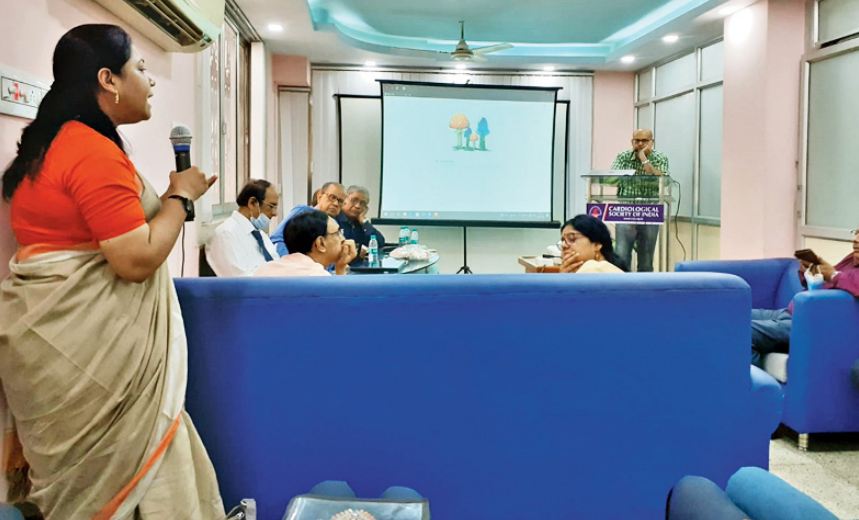A section of doctors and teachers have joined hands so students of government and aided schools can be sensitised about the threat of non-communicable diseases like cardiac disorders that account for a substantial percentage of death globally.
Doctors associated with the Cardiological Society of India (CSI) said they were focusing on school students from the primary level. Addiction to consuming junk foods, sugar-sweetened beverages and a growing inclination towards physically immobile practices like being glued to video games exposes them to the threat of non-communicable diseases.
By the time these students become young adults, many of them find themselves diagnosed with critical heart disorders, the doctors said.
A pilot project was launched on Sunday at an office of the CSI on CIT Road in association with the platform Siksha Alochana, an initiative of primary school teachers and educationists, as part of a drive to spread awareness among students.
Debabrata Roy, honorary general secretary of the CSI, said junk food, sugar-sweetened beverages, tobacco and alcohol have aggravated the threat of non-communicable disease.
“Factors like changed food habits among children, spending hours in front of the computer, staying glued to the mobile games and other physically immobile practices are only furthering the concerns. All these are leading to an increase in obesity. This obesity at a later stage is triggering conditions like cholesterol, high blood sugar, high blood pressure, leading to a surge of heart disorders at a later stage,” said Roy.
“If we can sensitise kids effectively through a sustained campaign, the consequent health risk could be averted”. Mrinal Kanti Das, president of the Asian Heart Society said, they were pursuing a “catch them young” policy.
“If we can rid them of the bad habits from the school level, they will be safe at a later stage. It is difficult to drop the habits when a school student grows into a youth or becomes middle-aged,” Das told The Telegraph.
The Telegraph, referring to a study of 1,029 genomes, reported on Sunday that about one in otherwise healthy Indians carries genetic variations to electrical disorders. Healthy-living lessons for kids heart that can lead to sudden cardiac death. The pilot programme that was launched on Sunday includes 150 schools in 12 districts of Bengal.
The districts are Coochbehar, Jalpaiguri, Uttar Dinajpur, Dakshin Dinajpur, Murshidabad, Nadia, North 24-Parganas, South 24-Parganas, Kolkata, Purba Medinipur, Paschim Medinipur and Jhargram.
Kumar Rana, a member of Siksha Alochana, said they will display cartoons to spread awareness so school students can relate to the campaign.
“The teachers will coordinate the exercise. Cartoons can be an effective mode of communication. A series of workshops will soon be held in the districts that would be attended by the doctors and the teachers,” said Rana.
During Sunday’s programme, the module for the healthcare education project was unveiled and handed to teachers who took part. The manual contains the energy and protein requirements of children of different age groups and lessons on physical activity.
